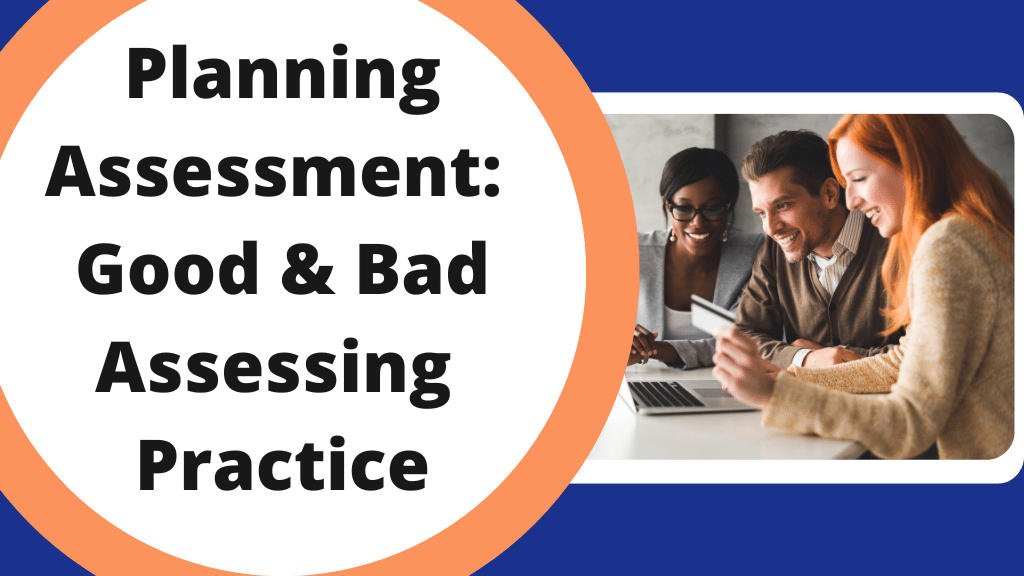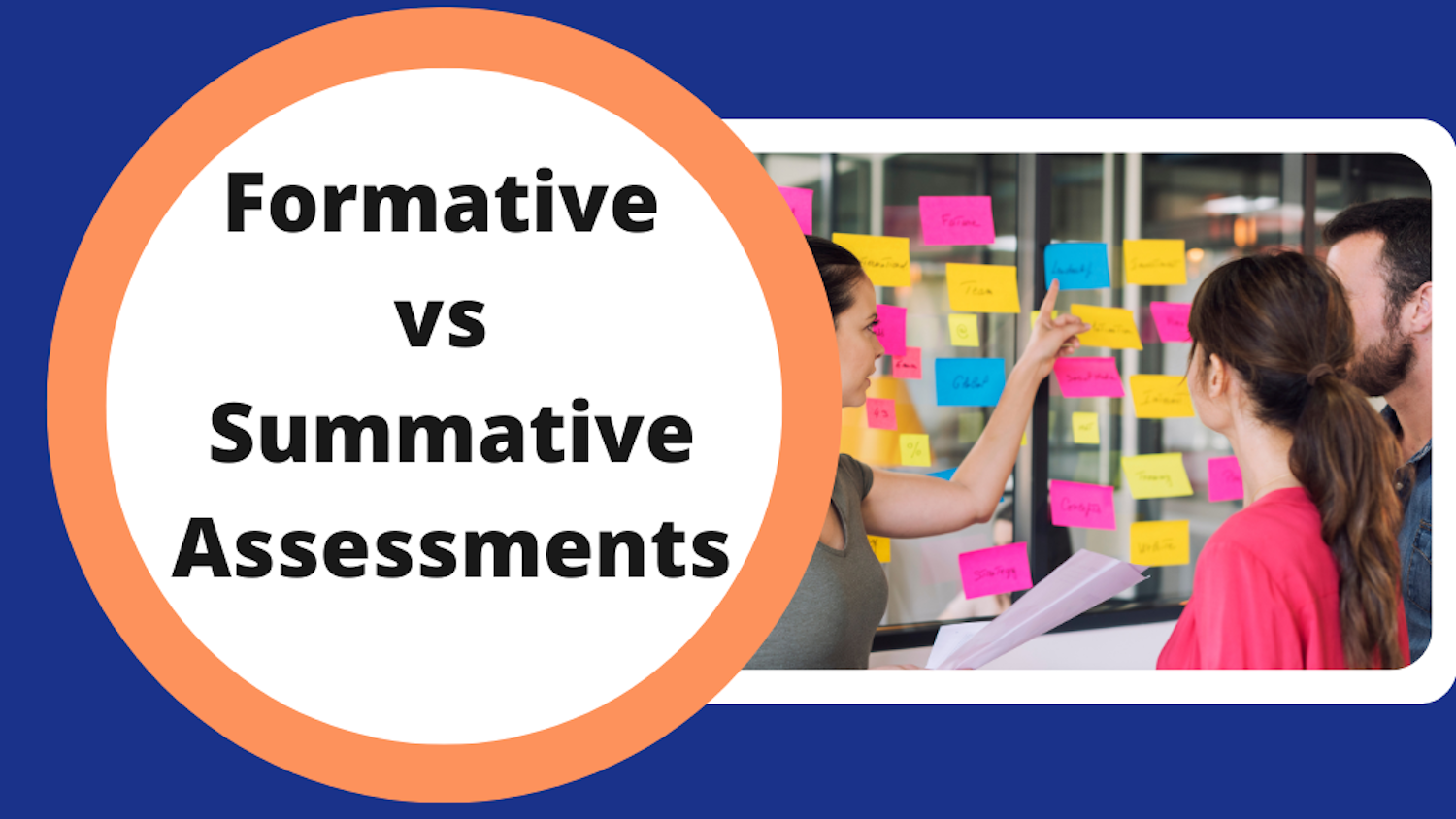June 21, 2024
Planning an Assessment: Good & Bad Assessing Practice

If you’ve ever been involved with assessing, either as a candidate or as an assessor, you’ll know that the best assessors create an assessment plan in advance. Planning an assessment makes the whole process easier for everyone involved and gives a better chance of a successful outcome – and by successful, we mean an accurate assessment result.
For a successful and accurate assessment process, several key factors to consider when planning help assessors and candidates get the most out of it, these include the assessment methods, the assessment standards, the learner’s approach to the assessment and your own approach.
Assessment Standards
The first stage in planning any assessment is ensuring you’re 100% familiar with the written specifications you will be judging the candidates on during their assessments. The best way to familiarise yourself with these is to go back to the source of the standards by reviewing the learning outcomes in the qualification specification published by the Awarding Body.
The Awarding Bodies expect all centres and assessors to work towards these standards, so it’s important to thoroughly read and understand them. You might think this is something only a beginner is required to do, especially if you’ve been assessing for years and feel confident in your assessment practices. However, these standards can be updated or changed, and if you’re referring to past knowledge or your organisation’s documents on these standards, you might not be following current requirements.
So, although it might be tempting to skip over this step, always refer back to the current Awarding Body standards as your starting point.
Once you’ve done this, you’ll be in a position to consider the next stage in planning for assessment.
Document the Objectives
Documenting what you expect the candidate to achieve to meet the learning outcomes means you go into the assessment with a clear understanding of what you’re looking for. With that knowledge, you can plan your assessment methods to suit. Just like the previous step, aim to look at this with fresh eyes for each assessment to avoid falling into the bad assessment practice of expecting all learners to demonstrate their knowledge and skills in exactly the same way.
Some of the different assessment methods you could consider include:
- Observations of the candidate – such as watching the candidate in their workplace
- Professional Discussions – discussing topics with the candidate
- Observing practical demonstrations – watching them demonstrate a skill/s
- Interviews – asking the candidate some questions
- Projects – setting a task, investigation or report to be carried out by the candidate
- Questions and answers – either verbally or via a set exam paper
Each method has its own strengths and weaknesses, so it’s best to consider these when planning assessment objectives to ensure the method you choose matches the learning outcomes.
Holistic Assessments
Holistic assessments are a good approach for assessment and planning because it’s a more efficient way to assess candidates for multiple learning outcomes. This makes better use of your and your candidate’s time, as you won’t need to make a return visit or schedule a separate assessment if you’ve been able to assess multiple outcomes in one assessment.
This works well with a “show me, then tell me” approach, where you observe the candidate doing something to cover a skills learning outcome and then discuss with them what they did to cover a related knowledge outcome.
Plan for Feedback
You should always plan to provide relevant feedback to the candidate during the assessment, but it’s important to avoid teaching them as part of this feedback. It’s very easy to fall into this trap, especially if you have been involved with teaching or training people. This results in you teaching the candidate and correcting what they have done whilst being assessed or even correcting and teaching them during the assessment.
To avoid doing this, you’ll need to provide feedback after it’s clear to the candidate whether or not they have passed, then you can allocate some time in your plan to go through some feedback with the candidate, whatever their result.
When it comes to the feedback you provide, nothing is worse for candidates, and your reputation as an assessor, than negative or demotivating feedback. Even if a candidate has not passed, your feedback should be constructive, so plan to have some phrases or statements to hand. This feedback should explain the reasons for the result to the candidate and what they could do in the future. For a candidate who hasn’t passed, you could suggest things they could practise, study or learn before their next assessment. Additionally, make sure that you point out what they did correctly to leave them with some positives from the assessment.
Avoid Bias, Criticism & Unfairness
Your candidates and everyone else in your field need to have confidence in your assessment, so it’s important to avoid bias for or against any candidates. Candidates should be judged equally regardless of background, location, date of assessment or any previous assessments they have taken.
Ensuring that your plans include time for feedback goes a long way toward helping you avoid bias or unfairness toward your assessment candidates. Simply verbalising or writing down the reasons for your decisions helps you rationalise what you are doing, and the mere act of explaining yourself to somebody else gives your decisions transparency.
Become a Qualified Assessor with Carlton Training
At Carlton Training, we are dedicated to providing top-quality assessor courses, including the Level 3 Certificate in Assessing Vocational Achievement (CAVA), designed for those aspiring to become qualified assessors in any sector. You can book assessor courses online and get started today, or contact our team for more advice on the best assessor qualification for your career goals.
Next ›‹ Previous
Back to Blog








